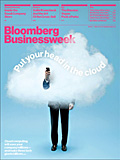Goldman Sachs Pressed By Born for Derivatives Data
July 01, 2010, 5:03 PM EDT(Adds FASB standard in 11th paragraph.)
By Matthew Leising and Shannon D. Harrington
July 1 (Bloomberg) -- Goldman Sachs Group Inc. refused a request from the Financial Crisis Inquiry Commission to reveal how much it makes trading derivatives, saying the bank doesn’t separate the figure from other businesses.
“Some other firms have provided us with that data when we’ve asked for it and Goldman Sachs hasn’t,” Commissioner Brooksley Born said today in Washington on the second day of a hearing investigating the role of derivatives in the 2008 credit crisis, which sparked the worst recession since the 1930s. “It makes one wonder why Goldman has the incentive or impetus to not release this information.”
Banks including JPMorgan Chase & Co., the biggest derivatives dealer, have provided estimates to investors. The top five U.S. commercial banks, including Goldman Sachs, generated an estimated $28 billion in revenue from privately negotiated derivatives in 2009, according to company reports collected by the Federal Reserve and people familiar with banks’ income sources.
Goldman Sachs, the most profitable Wall Street firm in history, is being questioned about credit-default swap trades with American International Group Inc., the insurer bailed out by the U.S. government after AIG was unable to meet collateral demands from trading partners on the contracts. The swaps, used by Goldman Sachs and other banks to hedge against declines in the value of mortgage-linked debt, caused losses at AIG as housing prices collapsed.
‘It’s Integrated’
Goldman Sachs Chief Financial Officer David Viniar testified today that the firm has no way of separating out its derivatives data from trading in cash securities.
“We don’t have a separate derivatives business,” Viniar told the panel. “It’s integrated into the rest of our business.”
Commissioner Byron Georgiou said he doubted Goldman Sachs was unable to provide the information.
“When you tell us that you don’t know how much you make in your derivatives business, nobody here really believes it,” Georgiou told Viniar. “Nobody here believes that you don’t know how much money you’re making on the various aspects of your business, it doesn’t make any sense.”
$49.1 Trillion
Goldman Sachs held a gross amount of $49.1 trillion of derivatives contracts as of March 31, according to an Office of the Comptroller of the Currency report last month. The bank reported total trading revenue of $7.65 billion during the first quarter. That follows total trading revenue of $23.2 billion in 2009, according to a filing with the Federal Reserve.
“It’s kind of dangerous, don’t you think, to claim to the FCIC that you don’t know the profitability of a major line of business,” said Craig Pirrong, a finance professor at the University of Houston. “How can you rationally allocate capital, for instance, if you don’t know the return to that capital?”
Under a March 2008 amendment to derivatives accounting standards, companies are exempt from breaking out gains or losses on derivatives used as part of a trading book that also includes cash securities, if other information on the trading activities is provided, according to the Financial Accounting Standards Board’s Statement No. 161.
Goldman Sachs is “definitely capable of providing the data that was asked for, but I can understand their fear of doing so,” said Brian Yelvington, head of fixed-income strategy at broker-dealer Knight Libertas LLC in Greenwich, Connecticut, and a former credit swaps trader.
Derivatives Revenue
“There is a potential for such a number to vastly overstate the amount of profit or loss captured by a particular business because much of that business may be symbiotic with another,” Yelvington said. “They may have made money on the derivatives leg of a trade, for example, and lost it on the cash leg.”
JPMorgan said in February 2009 that about 8 percent of its total revenue from 2006 to 2008 came from derivatives in its investment-banking unit, according to a presentation made to investors.
That breakdown and revenue figures from regulatory filings imply that half of JPMorgan’s $31.2 billion in trading revenue those years came from derivatives, according to Alexander Yavorsky, a senior analyst at Moody’s Investors Service in New York.
‘Highly Imprecise’
“Reporting a revenue number, just the profit on derivatives without looking at cash positions associated with hedging those, is going to be a highly imprecise exercise,” Yavorsky said in an interview today.
Goldman Sachs was subpoenaed by the commission last month after the New York-based firm sent more than a billion pages of documents to the panel, a shipment so sizable that panel members called it an attempt to hinder their probe.
“We did not ask them to pull up a dump truck to our offices and dump a bunch of rubbish,” Chairman Phil Angelides, who previously served as California’s treasurer, said June 7. “This has been a very deliberate effort over time to run out the clock.”
The commission, which will report its findings to Congress and President Barack Obama by December, said June 29 that the bank had been more responsive to information requests since being subpoenaed. Separately, Goldman Sachs faces a U.S. Securities and Exchange Commission fraud suit over sales of a mortgage-linked security. The bank has said the SEC suit is unfounded.
Born’s Warning
Born had warned in 1998, as chairman of the Commodity Futures Trading Commission, that the unregulated over-the- counter derivatives market posed a danger to the global financial system. She moved to address changes in how swaps based on interest rates, commodities or currencies were traded and was stopped by then-Federal Reserve Chairman Alan Greenspan, SEC Chairman Arthur Levitt and Treasury Secretary Robert Rubin, who all argued the market could regulate itself.
Born said last year that the banks that caused the crisis were trying to stop the congressional overhaul of the market.
“Special interests in the financial-services industry are beginning to advocate a return to business as usual,” Born said in May 2009 as she accepted a Profile in Courage award from the John F. Kennedy Library Foundation.
--With assistance from Christine Harper and Sarah Frier in New York. Editors: Dan Kraut, Alan Goldstein
To contact the reporters on this story: Matthew Leising in New York at mleising@bloomberg.net; Shannon D. Harrington in New York at sharrington6@bloomberg.net
To contact the editors responsible for this story: Dan Kraut at dkraut2@bloomberg.net; Alan Goldstein at agoldstein5@bloomberg.net

















